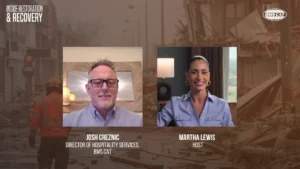Will Private Flights Chip Away at the First Class Market?
Driven by consumer desires for new experiences, innovative technologies and environmental impacts – travel is changing. Host Sarah Dandashy explores the technologies and logistics that power travel and the brands that build unforgettable experiences.
Flying private was once inaccessible to most, but the industry has changed, boasting flexibility and convenience for work and leisure. A veteran of the business, Rick Sitomer, CEO of Star Jets International, spoke with Say Yes to Travel host Sarah Dandashy about the changing environment.
Sitomer started the first private jet brokerage firm in 2001 after witnessing the inefficiency in the marketplace. He ran that business for 15 years before selling up but started back again in 2016. The company just announced its highest revenues to date in Q1 2021, which is the result of tremendous demand.
“In any disaster, aviation thrives. Many people were scared to fly commercial. The business did change when COVID hit. We made a few big trips for clients in the beginning with cargo jets moving over 14 million masks,” Sitomer said.
Sitomer noted that he thinks revenue gains will continue. He expects his business to reach $200-300 million in revenue a year. So, who are private jet clients?
“Flying first-class costs a fortune. You might as well fly private and get the convenience and flexibility that comes with it.” – Rick Sitomer
“It’s a lot of referrals. We look for clients that fly all the time for business or leisure. We do use marketing tactics like pay per click and are looking to do more TV ads to create brand awareness on business channels,” Sitomer added.
Experts agree that the private aviation industry is booming, with projections for it to hit $100 billion in five years. “The growth in the industry and business is exponential,” Sitomer said.
Now that countries are opening back up, Sitomer is witnessing a huge demand for luxury travel. It’s more convenient for travelers, and if they were going to fly first class, they might as well take a private jet.
Say Yes To Travel has a New Episode Every Thursday!
Follow us on social media for the latest updates in B2B!
Twitter – @MarketScale
Facebook – facebook.com/marketscale
LinkedIn – linkedin.com/company/marketscale









